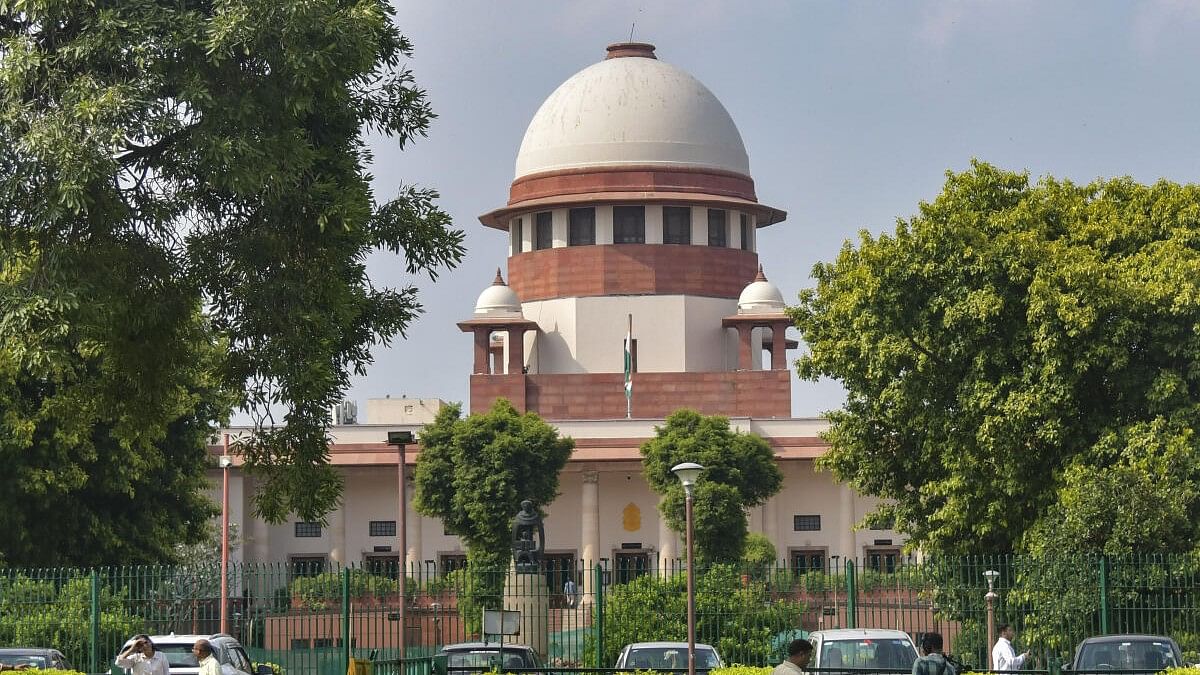
The Supreme Court of India
Credit: PTI photo
New Delhi: The Supreme Court on Thursday said informational privacy to political affiliation is necessary to protect the freedom and exercise of electoral franchise as details about a person’s political allegiance can be used to dis-enfranchise voters through surveillance.
A five-judge bench presided over by Chief Justice of India D Y Chandrachud said if the right to informational privacy extends to financial contributions to a political party, this court needs to decide if the Electoral Bonds Scheme adequately balances the right to information and right to informational privacy of political affiliation.
The bench said the expression of political beliefs is guaranteed under Article 19(1)(a) and forming political beliefs and opinions is the first stage of political expression.
The freedom of political expression cannot be exercised freely in the absence of privacy of political affiliation and the lack of privacy of political affiliation would also disproportionately affect those whose political views do not match the views of the mainstream, it said.
The bench said in the specific context of exercising electoral franchise, the lack of privacy of political affiliation would be catastrophic, and it is crucial to electoral democracy that the exercise of the freedom to vote is not subject to undue influence.
The bench said information about the political affiliation of individuals can then be used to influence their votes and voter surveillance gains particular significance when fewer people have attachments to political parties.
“Information about a person’s political affiliation can be used to dis-enfranchise voters through voter surveillance," the bench said, adding that informational privacy to political affiliation is necessary to protect the freedom of political affiliation and exercise of electoral franchise.
The court said that the scheme has two manifestations of privacy, first, informational privacy by prescribing confidentiality vis-à-vis the political party; and second, informational privacy by prescribing non-disclosure of the information of political contributions to the public.
The Union government submitted that contributions made to political parties must be protected both from the political party itself and the public because donor privacy is an extension of the principle of secret ballot and is a facet of free and fair elections.
The petitioners said that equating political contributions with expression of political preference through voting is flawed because it conflates money with speech. They also said that informational privacy does not extend to political contributions because they are by their very nature public acts which influence public policy, and thus, must be subject to public scrutiny
The bench said financial contributions to political parties are usually made for two reasons, first, they may constitute an expression of support to the political party and second, the contribution may be based on a quid pro quo.
“The huge political contributions made by corporations and companies should not be allowed to conceal the reason for financial contributions made by another section of the population: a student, a daily wage worker, an artist, or a teacher. When the law permits political contributions and such contributions could be made as an expression of political support which would indicate the political affiliation of a person, it is the duty of the Constitution to protect them," the bench said.
The CJI also emphasised not all political contributions are made with the intent of attempting to alter public policy. “Contributions are also made to political parties which are not substantially represented in the legislatures. Contributions to such political parties are made purely with the intent of expressing support,” he said.
The bench said money is not only essential for electoral outcomes and for influencing policies, it is also necessary for true democratic participation.
“It is necessary for enhancing the number of political parties and candidates contesting the elections which would in-turn impact the demographics of representatives in the Assembly. It is true that contributions made as quid pro quo transactions are not an expression of political support," the bench said.
“However, to not grant the umbrella of informational privacy to political contributions only because a portion of the contributions is made for other reasons would be impermissible. The Constitution does not turn a blind eye merely because of the possibilities of misuse," the bench added.
